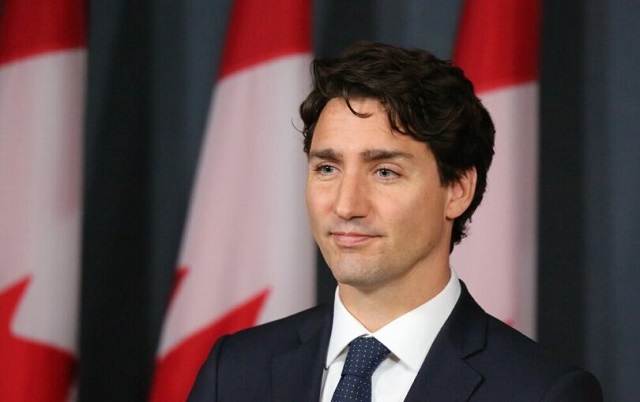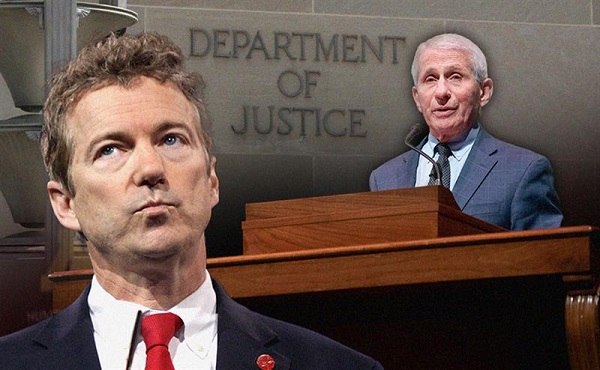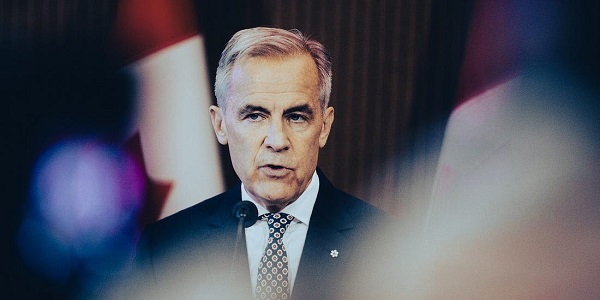Energy
Trudeau gov’t ‘green’ heat pump scheme a dismal failure, records show

From LifeSiteNews
A recent Inquiry Of Ministry tabled in the House of Commons showed that only 80 homeowners have thus far installed a heat pump through the Trudeau government’s anti-oil ‘green’ program.
A Canadian federal government “green” program offering homeowners government money to switch their reliable heating oil furnaces for less reliable electric heat pumps has been a dismal failure, according to recently released records.
A recent Inquiry Of Ministry, as per Blacklock’s Reporter, tabled in the House of Commons showed that only 80 homeowners have thus far opted into Prime Minister Justin Trudeau’s government heat pump program.
Conservative Party of Canada MP Shannon Stubbs had requested from the federal government, in her Inquiry Of Ministry, an answer to the question, “How many applications for funding through the Oil To Heat Pump Affordability Program have been received?”
The original scheme was to allow $10,000 to eligible homeowners to convert from their oil-fired furnaces to an electric heat pump. Trudeau’s cabinet last October expanded the grants to $15,000 along with a $250 “one-time bonus payment.”
Cabinet wrote in the Inquiry Of Ministry that the purchase and “installation of a new electric cold climate heat pump, save thousands of dollars annually on heating bills and help reduce greenhouse gas emissions.”
In total, some 286,000 Atlantic Canadians currently use furnaces fired by heating oil, and since the original program was introduced in February of last year, of 1,241 homeowners who asked for a subsidy, some 361 were denied, a rejection rate of 29 percent.
The Inquiry confirmed that only 80 oil-fired furnaces have been replaced by heat pumps nationwide.
Last month, LifeSiteNews reported that the “green” heat pump program is set to cost nearly four times as much as originally thought, from $750 million to $2.7 billion.
In October of last year, amid dismal polling numbers that showed his government would be defeated in a landslide by the Conservative Party come the next election, Trudeau announced he was pausing the collection of the carbon tax on home heating oil in Atlantic Canadian provinces for three years.
The carbon tax break came at the same time Trudeau’s own polling shows that for the Liberals to hold onto their 24 seats in Atlantic Canada, a carbon tax break would help their polling numbers, as most people in the area oppose the tax.
However, Trudeau refused to offer carbon tax relief to other provinces, such as Alberta and Saskatchewan, for natural gas. This led to Saskatchewan Premier Scott Moe announcing his government would defy the Trudeau government, and stop collecting the federal carbon tax on natural gas in this province, as of Jan 1, 2024.
The Trudeau government is trying to force net-zero regulations on all Canadian provinces, notably on electricity generation, as early as 2035. His government has also refused to extend a carbon tax exemption on heating fuels to all provinces, allowing only Atlantic provinces, this benefit.
Energy
Is The Carney Government Making Canadian Energy More “Investible”?

From Energy Now
By Ron Wallace
After a decade of Trudeau-era climate policies, there appears to be a remarkable growing support, from numerous political sources, for major Canadian resource corridor projects. These proposed major infrastructure “corridor” projects may include pipelines from Alberta, rail lines and other regional power plans.
Prime Minister Mark Carney’s principal piece of legislation introduced early in the first months of his government, and with a degree of urgency that has raised concerns, is Bill C-5, the Building Canada Act, legislation crafted to fast-track large public works and infrastructure projects. Carney, at some political risk as an apparent, transformed climate advocate (one who authored the book “Values” and who proposed sweeping ESG investment frameworks) has proposed a new Canadian economic agenda with this legislation. However, subject first to the appearance of a funded proposal from the private sector, he recently said that a new oil pipeline to the British Columbia coast is “highly likely to be included on a list of projects that would be deemed by Cabinet to be of national importance to the Canadian government.” The Carney government, confronted with a growing deficit, exasperated by trade negotiations with the U.S., is faced with an economy that has produced a Canadian per capita income of CAD$30,000 less than for Americans. While some may view this legislation as an encouraging new direction, Carney’s largest challenge may be to overcome the debilitating weight of climate Acts, Regulations and programs enacted by the Trudeau government that have choked Canadian economic and energy development.
As Lord Black has sensibly commented:
“Canada is waiting to see whether Carney will charge forward in pursuit of the public policy goal that has most preoccupied him for many years in different countries and ignore the trend now in place practically everywhere in the Western world, and roll back extreme and highly expensive climate objectives for the fiscal and cost-of-living convenience of citizens.”
The Carney government faces some stark choices: If they choose not to roll back many of the Canadian climate policies enacted by his predecessor, their only alternative will be to use alternative strategies like Bill C-5, legislation that has been designed to circumvent existing regulatory measures. But will that work?
The current optimism among some Premiers that Bill C-5 will accelerate regulatory progress for complex liner energy projects, such as new pipelines, should be tempered by a careful examination of Canadian regulatory history – starting with the Gateway Pipeline and the Trans Mountain pipeline expansion projects.
A Brief History
In 2010, Enbridge filed an application with the National Energy Board (NEB) for the Northern Gateway Pipeline which, after years of studies, hearings and consultations, was approved in 2014. However, legal challenges filed by First Nations and environmental groups led the Federal Court of Appeal in 2016 to overturn the approval due to what was judged as inadequate Indigenous consultation by federal agencies. That court ruling was followed that same year by a decision of the Trudeau Cabinet to officially reject the $7.9 billion project – a political decision that cost Enbridge and its investors of hundreds of millions. In what has been described as one of the most egregious decisions in the history of Canadian energy development, the regulatory saga demonstrated just how far Canada had moved from providing expert, non-political regulatory certainty for major energy infrastructure projects.
The Kinder Morgan Trans Mountain pipeline expansion, first proposed in 2013, also encountered years of controversy and opposition. In 2016, after an extensive review process, the NEB issued a conditional approval for the pipeline with 157 binding conditions designed to mitigate risks. However, legal and political challenges led the proponent to halt work in April 2018 after which time, in May of that year, the Government of Canada purchased the line for CAD $4.7 billion. That August the Federal Court of Appeal subsequently overturned the initial federal approval, having judged efforts of the federal government for Indigenous consultations to have been inadequate. The courts also controversially directed a wider assessment of the possible environmental impacts of marine shipping. The project was subsequently re-approved in 2019 by a “modernized” Canada Energy Regulator (CER)a decision upheld in 2020 when the Supreme Court of Canada dismissed further appeals, including those from several First Nations groups. The pipeline was completed on May 1, 2024, at a cost of CAD$35 billion.
Throughout those regulatory processes, in face of any assumptions that federal regulators have paramountcy for interprovincial, linear energy transmission projects, B.C. Premier John Horgan vowed to use “every tool in the toolbox” to oppose the expansion of the Trans Mountain pipeline with legal challenges, regulatory oversight and legislation designed to limit the volume of diluted bitumen transported through the province. These policies led to strained relations (and a minor trade war to boycott B.C. wine) with Alberta but ultimately failed when, in May 2019 with a unanimous decision from the B.C. Court of Appeal that affirmed that the province had no jurisdiction over federally regulated pipelines. A subsequent appeal from B.C. was also dismissed in January 2020 by the Supreme Court of Canada. However, these events clearly demonstrated that expensive delays from legal challenges and interprovincial rivalries constitute material challenges for any developers, including the federal government.
The Road Ahead
Fast forward to 2025. Carney’s legislative formula Bill C-5 (the Free Trade and Labour Mobility in Canada Act and the Building Canada Act) received Royal ascent on June 26, 2025 with the intention to accelerate major infrastructure projects that are judged solely, by Cabinet, as being in the national interest. Reports indicate that these nation-building initiatives are to be designated from five key areas as “shared priorities” between Ottawa and the provinces: the Western and Arctic Corridor, the Eastern Energy Partnership, Pathways to Critical Minerals and the Next Stage of Nuclear and Export Diversification Infrastructure.
However, Bill C-5’s sweeping legislative prescription represents only the first step toward solving Canada’s regulatory predicament. Notably, in attempting to accelerate the development process to enhance Canada’s flagging economy, in addition to provincial and Indigenous opposition, the Carney government may soon find itself squarely athwart the extensive climate legislation of the previous Trudeau government. Citing issues related to consultation and free, prior and informed consent, concerted opposition to Bill C-5 has arisen from national Indigenous organizations who argue that the law potentially contradicts the federal government’s commitment to reconciliation.
Meanwhile, B.C. NDP Premier David Eby has announced opposition to any new oil pipelines beyond an expansion designed to maximize Alberta’s bitumen export capacity from the Trans Mountain Expansion (TMX). His province has advanced policies like the Clean BC Strategy crafted to electrify industry, reduce greenhouse-gas emissions and provide alternatives to heavy oil. This approach appears, on the surface, to be in direct conflict with the aspirations of Alberta. Perhaps most significantly is Eby’s stance of “no proponent no pipeline” – meaning any oil pipelines planned from Alberta to the B.C. north coast region. While stating that his province would not oppose on ideological grounds consideration of a privately funded pipeline, Eby contends that, since there is at present no formal proposal or plan for any such pipeline, there is no project to consider. This stance is consistent with past interprovincial conflicts with national-scale resource development in which Alberta’s ambitions for oil production and transport appear to conflict with B.C.’s priorities for environmental protection and resource development.
Recall that the Oil Tanker Moratorium Act (Bill C-48) enacted in 2019, prohibits large oil tankers from operating along the northern coast of British Columbia. This subject has also recently been addressed by Premiers Smith and Ford with MoU’s that call for the repeal of that Act – a strategy that is opposed by Premier Eby and some Indigenous representatives in the north coastal region of B.C. Recall also that Bill C-48 effectively killed the proposed Indigenous-led $16-billion Eagle Spirit pipeline project that was designed to transport oil from northern Alberta to Prince Rupert, B.C.
Then there are B.C.’s Stewardship Agreements with Indigenous partners. These frameworks, negotiated between Indigenous Nations and governments, recognize Indigenous rights and title via regional co-management agreements. Since 2014, these coastal regional partnerships between B.C. and First Nations have set out the Environmental Stewardship Initiative (ESI) a forum agreed with six First Nations designed to address cumulative environmental effects and manage aquatic habitats. B.C. has also developed a Marine Plan Partnership for the North Pacific Coast to promote sustainable development and promote Indigenous stewardship. Clearly, governance of the Canadian west coast region has developed significantly since 2013 when the Trans Mountain pipeline was first proposed. B.C. has also determinedly implemented policies like those designed to accelerate the expansion of the provincial electricity grid to “transition” away from a hydrocarbon economy. These are policies not necessarily consistent with the ambitions of Alberta or the Carney government for pipeline projects designated as being “in the national interest.”
Nonetheless, there are signs that the Carney government may be able to satisfy Alberta’s public aspirations for more pipelines to tidewater. Since 2019, when Bill C-48 was first enacted, there have developed new, and significant industrial partnerships between First Nations in B.C., prime examples of which are the Nisga’a’s Ksi Lisims LNG project and the Haisla’s Cedar LNG project. TC Energy’s Coastal Gas pipeline first proposed in 2014 and subjected to a torrent of legal objections and violent protests, nonetheless concluded 20 agreements with First Nations along the route, to enter service in 2023. However, it came at a final cost of $14.5 billion – more than three times the original estimate. LNG Canada, first proposed in 2012 at a cost of CAD $40 billion (Canada’s largest private-sector investment) has entered service in June 30, 2025. The liquefied natural gas export terminal, located in the traditional territory of the Haisla Nation near Kitimat, B.C., is presently assessing plans to double its export capacity.
The TMX pipeline signed more than $650 million in Indigenous benefit agreements and completed $4.9 billion in Indigenous-owned business contracts during construction with the possibility of yet achieving a partial ownership in the line. Having entered commercial service on May 1, 2024 the expansion tripled pipeline capacity to 890,000 bpd and enabled exports of approximately 300,000 bpd from the Port of Vancouver’s Westridge Marine Terminal. Aframax tanker loadings have increased from two to twenty per month with an expanding list of destinations that include the US, China, South Korea, Japan, India and Brunei proving that Canada can significantly diversify export markets and reduce export reliance on the U.S. Gulf Coast region.
Concluding Thoughts
Do these recent industrial successes, all achieved at enormous cost, in face of material regulatory and legal challenges, indicate that Bill C-5 can enable a future for Canadian non-renewable energy presupposed by the Carney government?
While Alberta Premier Danielle Smith and Ontario Premier Doug Ford have recently signed agreements to facilitate new energy and trade infrastructure other voices have cautioned that while Bill C-5 may add some potential for accelerating developments like Canadian LNG, it’s far from a guarantee, especially with B.C.’s restrictive emissions requirements. As the University of Calgary’s Richard Masson noted: “C-5 might help us a bit, but it’s a long way from being a settled matter.” Cody Battershill, CEO and co-founder of Canada Action, while acknowledging the new, more positive tone about LNG exports, cautioned that regulations like the Impact Assessment Act and federal and provincial greenhouse gas emissions caps present challenges to further development.
Enbridge CEO Greg Ebel recently outlined requirements that his company and other investors would need from the Carney government before supporting the revival of new export pipelines proposed by provincial premiers – projects like Northern Gateway. Ebel foresaw a need for “legal guarantees” and the removal of “various environmental policies:”
“For us to be willing to seriously consider reinvesting in a project like that, whether it’s east or west or just west, we need to see real change on numerous fronts.”
However, such “real change” would require broader federal and provincial legislative reforms that would extend beyond Bill C-5 – “reforms” that would affect policies like emissions caps, carbon taxes and environmental assessment rules and tanker bans. As Ebel noted:
“A lot of co-ordinated federal, and pan-provincial legislative and regulatory action would be required before we think investors, management teams, or customers would be able to green light such projects.”
And then there is the challenge of dealing with what Lord Black has termed the “incomprehensible references” to carbon-neutral pipelines. Will Bill C-5 be sufficient to overcome existing Acts and legislation that embody fundamentally irreconcilable principles of governance? McConaghy has argued that Alberta is, in fact, on a collision course with the federal Liberal government. This conflict is driven by a fundamental disagreement: “Will Alberta and Western Canada be allowed to fully develop its hydrocarbon endowment or will that economic value be lost in pursuit of the climate policy known as “net zero?”.
It is estimated that since 2015 Canada has experienced a flight of investment capital approaching CAD$650 billion due to lost, or deferred, resource projects – particularly in the energy sector. At a time of immense trade-related pressures from the U.S., Carney appears to be attempting to blend policies of his minority government with industrial competitiveness, fiscal restraint and, not least, climate.
As for major pipelines, he has stated that consideration of those projects would require a funded proposal from the private sector. The comments from Greg Ebel indicate that the industry and its key investors expect material, indeed wholesale, changes to the federal regulatory regime – revisions that would extend far beyond those provided for in Bill C-5. Those are legislative changes that the Carney government may be reluctant, unwilling or unable to enact. It may be significant that Carney who has been a significant advocate for international climate policies has, in stark contract to those of his predecessor, issued mandate letters to Ministers in which the issue of climate change was not included among the top seven Ministerial priorities.
Will a fully funded, private sector proposal for a major new pipeline from Alberta yet appear? Perhaps. However, it may take more, much more, than Bill C-5 alone to produce a result that will encourage material new capital investment in the Canadian energy sector. One can only hope that the Carney government is truly willing to do the heavy lifting, accept reality and repeal legislation that has driven so much investment capital away from Canada.
Ron Wallace is a former Member of the National Energy Board who retired in 2016.
Energy
Activists using the courts in attempt to hijack energy policy

2016 image provided by Misti Leon, left, sits with her mom, Juliana Leon. Misti Leon is suing several oil and gas companies in one of the first wrongful-death claims in the U.S. seeking to hold the fossil fuel industry accountable for its role in the changing climate.

From the Daily Caller News Foundation
By Jason Isaac
They twist yesterday’s weather into tomorrow’s crisis, peddle apocalyptic forecasts that fizzle, and swap “global warming” for “climate change” whenever the narrative demands. They sound the alarm on a so-called climate emergency — again and again.
Now, the Left has plunged to a new low: weaponizing the courts with a lawsuit in Washington State that marks a brazen, desperate escalation. This isn’t just legal maneuvering—it’s the exploitation of personal tragedy in service of an unpopular anti-energy climate crusade.
Consider the case at the center of a new legal circus: Juliana Leon, 65, tragically died of hyperthermia during a 100-mile drive in a car with broken air conditioning, as a brutal heat wave pushed temperatures to 108 degrees Fahrenheit.
Dear Readers:
As a nonprofit, we are dependent on the generosity of our readers.
Please consider making a small donation of any amount here.
Thank you!
The lawsuit leaps from this heartbreaking event to a sweeping claim: that a single hot day is the direct result of global warming.
The lawsuit preposterously links a very specific hot weather event to theorized global warming. Buckle up—their logic is about to take a wild ride.
Some activist scientists have further speculated that what may be a gradual long-term trend of slight warming thought to be both cyclical and natural, might be possibly exacerbated by the release of greenhouse gases. Some of these releases are the result of volcanic activity while some comes from human activities, including the burning of oil, natural gas and coal.
Grabbing onto that last, unproven thread, the plaintiffs have zeroed in on a handful of energy giants—BP, Chevron, Conoco, Exxon, Phillips 66, Shell, and the Olympic Pipe Company—accusing them of causing Leon’s death. Apparently, these few companies are to blame for the entire planet’s climate, while other oil giants, coal companies, and the billions of consumers who actually use these fuels get a free pass.
Meanwhile, “climate journalists” in the legacy media have ignored key details that will surely surface in court. Leon made her journey in a car with no air conditioning, despite forecasts warning of dangerous heat. She was returning from a doctor’s visit, having just been cleared to eat solid food after recent bariatric surgery.
But let’s be clear: this lawsuit isn’t about truth, justice, or even common sense. It’s lawfare, plain and simple.
Environmental extremists are using the courts to hijack national energy policy, aiming to force through a radical agenda they could never pass in Congress. A courtroom win would mean higher energy prices for everyone, the potential bankruptcy of energy companies, or their takeover by the so-called green industrial complex. For the trial lawyers, these cases are gold mines, with contingency fees that could reach hundreds of millions.
This particular lawsuit was reportedly pitched to Leon’s daughter by the left-leaning Center for Climate Integrity, a group bankrolled by billionaire British national Christopher Hohn through his Children’s Investment Fund Foundation and by the Rockefeller Foundation. It’s yet another meritless claim in the endless list of climate lawsuits that are increasingly being tossed out of courts across the country.
Earlier this year, a Pennsylvania judge threw out a climate nuisance suit against oil producers brought by Bucks County, citing lack of jurisdiction. In New York, Supreme Court Justice Anar Patel dismissed a massive climate lawsuit by New York City, pointing out the city couldn’t claim both public awareness and deception by oil companies in the same breath.
But the Washington State case goes even further, threatening to set a dangerous precedent: if it moves forward, energy companies could face limitless liability for any weather-related injury. Worse, it would give unwarranted credibility to the idea — floated by a leftwing activist before the U.S. Senate — that energy executives could be prosecuted for homicide, a notion that Republican Texas Sen. Ted Cruz rightly called “moonbeam, wacky theory.”
The courts must keep rejecting these absurd lawfare stunts. More importantly, America’s energy policy should be set by Congress—elected and accountable—not by a single judge in a municipal courtroom.
Jason Isaac is the founder and CEO of the American Energy Institute. He previously served four terms in the Texas House of Representatives.
-

 Alberta2 days ago
Alberta2 days agoMedian workers in Alberta could receive 72% more under Alberta Pension Plan compared to Canada Pension Plan
-

 COVID-192 days ago
COVID-192 days agoSen. Rand Paul: ‘I am officially re-referring Dr. Fauci to the DOJ’
-

 Crime2 days ago
Crime2 days agoDEA Busts Canadian Narco Whose Chinese Supplier Promised to Ship 100 Kilos of Fentanyl Precursors per Month From Vancouver to Los Angeles
-

 Education2 days ago
Education2 days agoTrump praises Supreme Court decision to allow dismantling of Department of Education
-

 International1 day ago
International1 day agoMatt Walsh slams Trump administration’s move to bury Epstein sex trafficking scandal
-

 National1 day ago
National1 day agoDemocracy Watch Blows the Whistle on Carney’s Ethics Sham
-

 Business2 days ago
Business2 days agoCanada must address its birth tourism problem
-

 Business2 days ago
Business2 days agoConservatives demand probe into Liberal vaccine injury program’s $50m mismanagement





